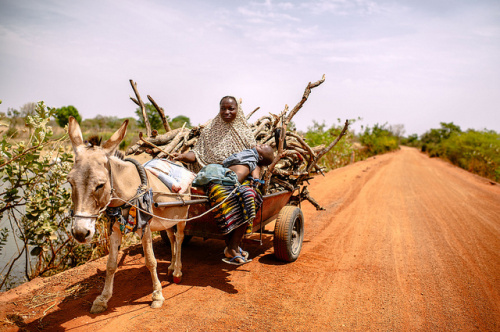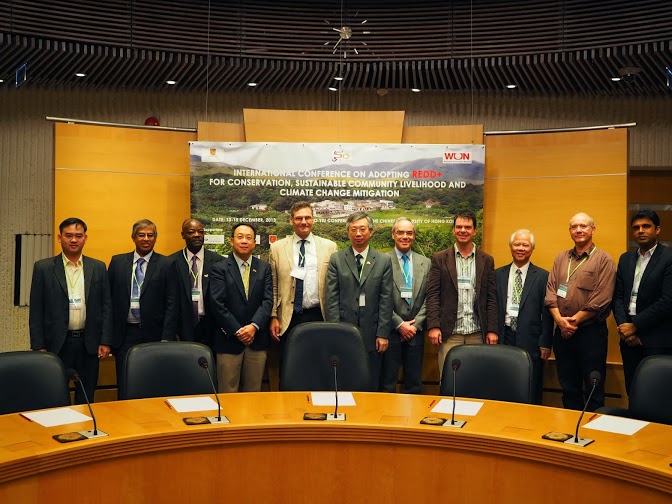IUFRO 125th Anniversary Congress Spotlight #46 – Getting a handle on future needs of forestland owners
Private owners control nearly 70 million hectares of forestland around the globe and account for well over 50% of the forestland in many countries in Europe and North and South America.

What does the future hold for owners of forestland? (Photo Pixabay)
These owners – many of them families, individuals and other small holders – operating within social, financial and political constraints, will largely dictate the future of the forests.
That is the underlying reason for a session at the upcoming IUFRO 125th Anniversary Congress in Freiburg, Germany in September entitled: History, Findings and Future Directions of Forest Landowner Research.
Dr. Brett Butler, of the U.S. Forest Service, is coordinating the session and says: “There are numerous individual researchers and institutions that study these private owners, but the opportunities to directly compare findings and methods across countries are limited. Read more…
Future of forest industrial business: co-management of ecosystem services and corporate sustainability?
Session #: F-7
Session Content: The session brings together a rich collection of research-based evidence on ecosystem service management and the emerging interactions between businesses, industrial plantations and local livelihoods. Along this, the session addresses impacts from changing international trade flows and foreign investments on the sustainable future of forest industry. Key examples are drawn from the Asian context with a reference drawn from other parts of the world. An important aspect is to bridge the gap between the future of forest-based industrial business and recent UN Sustainable Development goals and their inferences on human and environmental development perspectives. Read more…
Biomass – Capturing the Potential
Session title: Sustainable biomass for Asia’s growing bioeconomy: regional initiatives and promising examples
Moderator: Viktor J. Bruckman (Austrian Academy of Sciences, Austria; coordinator IUFRO TF “SFBN”)
Monday, 24 October 2016, 16:00-180:00 (302 A)
Find more information on the IUFRO Task Force, Sustainable Forest Biomass Network, at:
http://www.iufro.org/science/task-forces/forest-biomass/
In this session the speakers gave examples of concepts and cases for the sustainable development of biomass in Asia and Oceania. The variety of topics and local conditions highlighted the diversity of research required to provide a sound scientific basis to guide policy that supports innovation and protects forest land from degradation, over-exploitation, and subsequent negative impacts on ecosystem services. Read more…
Can REDD+ Achieve Conservation, Livelihoods and Climate Change Mitigation Goals?
By John Parrotta (Deputy Coordinator, IUFRO Division 8) and Lawal Marafa (Chair of the Conference Organizing Committee)
Dealing with uncertainties
REDD+ (reducing greenhouse gas emissions from deforestation and forest degradation, and enhancing forest carbon stocks in developing countries) is an evolving mechanism for climate change mitigation under continued debate within and outside of the UN Framework Convention on Climate Change (UNFCCC). While it has the potential to realize its primary climate change mitigation objective, there is considerable uncertainty regarding its actual or potential impacts on biodiversity, forests and the livelihoods of people in the tropical and sub-tropical forested landscapes where REDD+ implementation is envisaged.
Toss clichés aside and consider gender in ‘landscape’ context — expert says
NOTE: This text is reblogged from the CIFOR blog post at http://blog.cifor.org/20697/toss-cliches-aside-and-consider-gender-in-landscape-context-expert#.Us022ifzzTO
***********************************************************

We need to challenge our own blind spots and put gender research into practice, said Esther Mwangi, a senior scientist with the Forests and Governance Program at the Center for International Forestry Research. CIFOR/Ollivier Girard
WARSAW, Poland (18 December 2013) — Crafting development strategies based on credible research results rather than relying on outdated, unsubstantiated statistics will eliminate gender stereotypes and boost the fight against climate change, a development expert says.
Steering sustainable development polices toward a “landscapes approach” framework, which applies an integrated approach to land management, will make the relevance of gender to environmental debates even more apparent, said Seema Arora-Jonsson, associate professor of rural development with the University of Agricultural Sciences in Uppsala, Sweden.

